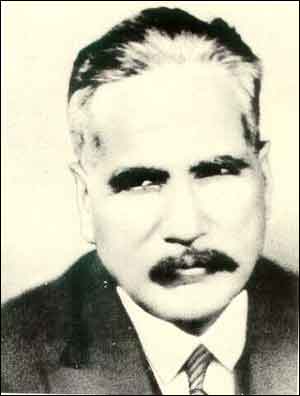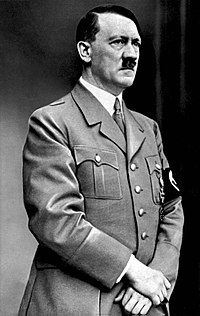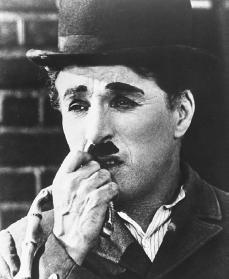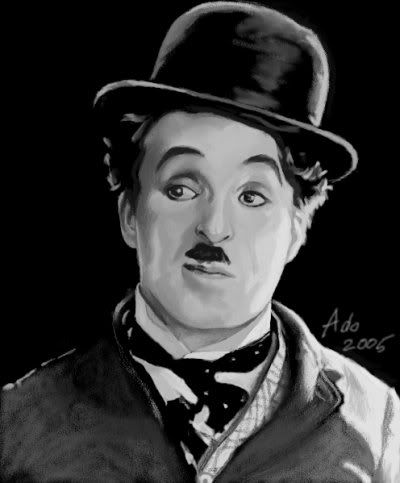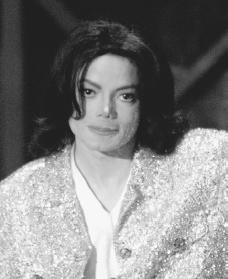Allama Iqbal Biography
Iqbal was an heir to a very rich literary, mystic, philosophical and religious tradition. He imbibed and assimilated all that was best in the past and present Islamic and Oriental thought and culture. His range of interests covered Religion, Philosophy, Art, Politics, Economics, the revival of Muslim life and universal brotherhood of man. His prose, not only in his national language but also in English, was powerful. His two books in English demonstrate his mastery of English. But poetry was his medium par excellence of expression. Everything he thought and felt, almost involuntarily shaped itself into verse.
Iqbal's Works
His first book Ilm ul Iqtisad/The knowledge of Economics was written in Urdu in 1903 . His first poetic work Asrar-i Khudi (1915) was followed by Rumuz-I Bekhudi (1917). Payam-i Mashriq appeared in 1923, Zabur-i Ajam in 1927, Javid Nama in 1932, Pas cheh bayed kard ai Aqwam-i Sharq in 1936, and Armughan-i Hijaz in 1938. All these books were in Persian. The last one, published posthumously is mainly in Persian: only a small portion comprises Urdu poems and ghazals.
His first book of poetry in Urdu, Bang-i Dara (1924) was followed by Bal-i Jibril in 1935 and Zarb-i Kalim in 1936.
Bang-i Dara consist of selected poems belonging to the three preliminary phases of Iqbal's poetic career. Bal-i Jibril is the peak of Iqbal's Urdu poetry. It consists of ghazals, poems, quatrains, epigrams and displays the vision and intellect necessary to foster sincerity and firm belief in the heart of the ummah and turn its members into true believers. Zarb-i Kalim was described by the poet himself "as a declaration of war against the present era". The main subjects of the book are Islam and the Muslims, education and upbringing, woman, literature and fine arts, politics of the East and the West. In Asrar-i Khudi, Iqbal has explained his philosohy of "Self". He proves by various means that the whole universe obeys the will of the "Self". Iqbal condemns self-destruction. For him the aim of life is self-relization and self-knowledge. He charts the stages through which the "Self" has to pass before finally arriving at its point of perfection, enabling the knower of the "Self" to become the viceregent of Allah on earth/Khalifat ullah fi'l ard. In Rumuz-i Bekhudi, Iqbal proves that Islamic way of life is the best code of conduct for a nation's viability. A person must keep his individual characteristics intact but once this is achieved he should sacrifice his personal ambitions for the needs of the nation. Man cannot realize the "Self" out of society. Payam-i Mashriq is an answer to West-Istlicher Divan by Goethe, the famous German peot. Goethe bemoaned that the West had become too materialistic in outlook and expected that the East would provide a message of hope that would resuscitate spiritual values. A hundred years went by and then Iqbal reminded the West of the importance of morality, religion and civilization by underlining the need for cultivating feeling, ardour and dynamism. He explained that life could, never aspire for higher dimensions unless it learnt of the nature of spirituality.
Zabur-i Ajam includes the Mathnavi Gulshan-i Raz-i Jadid and Bandagi Nama. In Gulshan-i Raz-i Jadid, he follows the famous Mathnavi Gulshan-i Raz by Sayyid Mahmud Shabistri. Here like Shabistri, Iqbal first poses questions, then answers them with the help of ancient and modern insight and shows how it effects and concerns the world of action. Bandagi Nama is in fact a vigorous campaign against slavery and subjugation. He explains the spirit behind the fine arts of enslaved societies. In Zabur-i Ajam, Iqbal's Persian ghazal is at its best as his Urdu ghazal is in Bal-i Jibril. Here as in other books, Iqbal insists on remembering the past, doing well in the present and preparing for the future. His lesson is that one should be dynamic, full of zest for action and full of love and life. Implicitly, he proves that there is no form of poetry which can equal the ghazal in vigour and liveliness. In Javid Nama, Iqbal follows Ibn-Arabi, Marri and Dante. Iqbal depicts himself as Zinda Rud (a stream, full of life) guided by Rumi the master, through various heavens and spheres and has the honour of approaching Divinity and coming in contact with divine illuminations. Several problems of life are discussed and answers are provided to them. It is an exceedingly enlivening study. His hand falls heavily on the traitors to their nation like Mir Jafar from Bengal and Mir Sadiq from the Deccan, who were instrumental in the defeat and death of Nawab Siraj-ud-Daula of Bengal and Sultan Tipu of Mysore respectively by betraying them for the benefit of the British. Thus, they delivered their country to the shackles of slavery. At the end, by addressing his son Javid, he speaks to the young people at large and provides guidance to the "new generation".
Pas Cheh Bay ed Kard ai Aqwam-i Sharq includes the mathnavi Musafir. Iqbal's Rumi, the master, utters this glad tiding "East awakes from its slumbers" "Khwab-i ghaflat". Inspiring detailed commentary on voluntary poverty and free man, followed by an exposition of the mysteries of Islamic laws and sufic perceptions is given. He laments the dissention among the Indian as well as Muslim nations. Mathnavi Musafir, is an account of a journey to Afghanistan. In the mathnavi the people of the Frontier (Pathans) are counseled to learn the "secret of Islam" and to "build up the self" within themselves.
Armughan-i Hijaz consists of two parts. The first contains quatrains in Persian; the second contains some poems and epigrams in Urdu. The Persian quatrains convey the impression as though the poet is travelling through Hijaz in his imaginatin. Profundity of ideas and intensity of passion are the salient features of these short poems. The Urdu portion of the book contains some categorical criticism of the intellectual movements and social and political revolutions of the modern age.
Iqbal was an heir to a very rich literary, mystic, philosophical and religious tradition. He imbibed and assimilated all that was best in the past and present Islamic and Oriental thought and culture. His range of interests covered Religion, Philosophy, Art, Politics, Economics, the revival of Muslim life and universal brotherhood of man. His prose, not only in his national language but also in English, was powerful. His two books in English demonstrate his mastery of English. But poetry was his medium par excellence of expression. Everything he thought and felt, almost involuntarily shaped itself into verse.
Iqbal's Works
His first book Ilm ul Iqtisad/The knowledge of Economics was written in Urdu in 1903 . His first poetic work Asrar-i Khudi (1915) was followed by Rumuz-I Bekhudi (1917). Payam-i Mashriq appeared in 1923, Zabur-i Ajam in 1927, Javid Nama in 1932, Pas cheh bayed kard ai Aqwam-i Sharq in 1936, and Armughan-i Hijaz in 1938. All these books were in Persian. The last one, published posthumously is mainly in Persian: only a small portion comprises Urdu poems and ghazals.
His first book of poetry in Urdu, Bang-i Dara (1924) was followed by Bal-i Jibril in 1935 and Zarb-i Kalim in 1936.
Bang-i Dara consist of selected poems belonging to the three preliminary phases of Iqbal's poetic career. Bal-i Jibril is the peak of Iqbal's Urdu poetry. It consists of ghazals, poems, quatrains, epigrams and displays the vision and intellect necessary to foster sincerity and firm belief in the heart of the ummah and turn its members into true believers. Zarb-i Kalim was described by the poet himself "as a declaration of war against the present era". The main subjects of the book are Islam and the Muslims, education and upbringing, woman, literature and fine arts, politics of the East and the West. In Asrar-i Khudi, Iqbal has explained his philosohy of "Self". He proves by various means that the whole universe obeys the will of the "Self". Iqbal condemns self-destruction. For him the aim of life is self-relization and self-knowledge. He charts the stages through which the "Self" has to pass before finally arriving at its point of perfection, enabling the knower of the "Self" to become the viceregent of Allah on earth/Khalifat ullah fi'l ard. In Rumuz-i Bekhudi, Iqbal proves that Islamic way of life is the best code of conduct for a nation's viability. A person must keep his individual characteristics intact but once this is achieved he should sacrifice his personal ambitions for the needs of the nation. Man cannot realize the "Self" out of society. Payam-i Mashriq is an answer to West-Istlicher Divan by Goethe, the famous German peot. Goethe bemoaned that the West had become too materialistic in outlook and expected that the East would provide a message of hope that would resuscitate spiritual values. A hundred years went by and then Iqbal reminded the West of the importance of morality, religion and civilization by underlining the need for cultivating feeling, ardour and dynamism. He explained that life could, never aspire for higher dimensions unless it learnt of the nature of spirituality.
Zabur-i Ajam includes the Mathnavi Gulshan-i Raz-i Jadid and Bandagi Nama. In Gulshan-i Raz-i Jadid, he follows the famous Mathnavi Gulshan-i Raz by Sayyid Mahmud Shabistri. Here like Shabistri, Iqbal first poses questions, then answers them with the help of ancient and modern insight and shows how it effects and concerns the world of action. Bandagi Nama is in fact a vigorous campaign against slavery and subjugation. He explains the spirit behind the fine arts of enslaved societies. In Zabur-i Ajam, Iqbal's Persian ghazal is at its best as his Urdu ghazal is in Bal-i Jibril. Here as in other books, Iqbal insists on remembering the past, doing well in the present and preparing for the future. His lesson is that one should be dynamic, full of zest for action and full of love and life. Implicitly, he proves that there is no form of poetry which can equal the ghazal in vigour and liveliness. In Javid Nama, Iqbal follows Ibn-Arabi, Marri and Dante. Iqbal depicts himself as Zinda Rud (a stream, full of life) guided by Rumi the master, through various heavens and spheres and has the honour of approaching Divinity and coming in contact with divine illuminations. Several problems of life are discussed and answers are provided to them. It is an exceedingly enlivening study. His hand falls heavily on the traitors to their nation like Mir Jafar from Bengal and Mir Sadiq from the Deccan, who were instrumental in the defeat and death of Nawab Siraj-ud-Daula of Bengal and Sultan Tipu of Mysore respectively by betraying them for the benefit of the British. Thus, they delivered their country to the shackles of slavery. At the end, by addressing his son Javid, he speaks to the young people at large and provides guidance to the "new generation".
Pas Cheh Bay ed Kard ai Aqwam-i Sharq includes the mathnavi Musafir. Iqbal's Rumi, the master, utters this glad tiding "East awakes from its slumbers" "Khwab-i ghaflat". Inspiring detailed commentary on voluntary poverty and free man, followed by an exposition of the mysteries of Islamic laws and sufic perceptions is given. He laments the dissention among the Indian as well as Muslim nations. Mathnavi Musafir, is an account of a journey to Afghanistan. In the mathnavi the people of the Frontier (Pathans) are counseled to learn the "secret of Islam" and to "build up the self" within themselves.
Armughan-i Hijaz consists of two parts. The first contains quatrains in Persian; the second contains some poems and epigrams in Urdu. The Persian quatrains convey the impression as though the poet is travelling through Hijaz in his imaginatin. Profundity of ideas and intensity of passion are the salient features of these short poems. The Urdu portion of the book contains some categorical criticism of the intellectual movements and social and political revolutions of the modern age.
Allama Iqbal
Allama Iqbal
Allama Iqbal
Allama Iqbal
Allama Iqbal
Allama Iqbal
Allama Iqbal
Allama Iqbal
Allama Iqbal
Allama Iqbal





